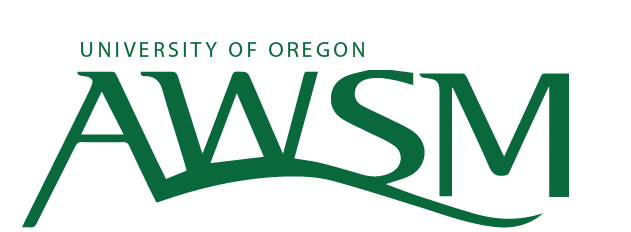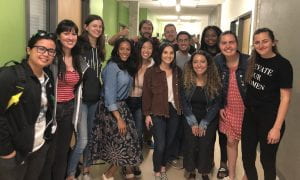
UO AWSM wrapped up its events for the 2018-2019 school year last week by hosting Ashley Young and Lindsey Wisniewski from NBC Sports Northwest. Here are our chapter’s five takeaways from the event:
1.”Know your SH!T” When looking to impress editors, hiring managers or even sources, always do some research ahead of time. Come over-prepared, have more to talk about that not enough. Ashley stressed always knowing you who are talking to and who you want to be talking to and why. Impress people by being able to talk about more than what’s on their LinkedIn bios.
The first lesson [of the] journalism field is to know who you want to work with and why. It’s important to know who you want to work with and who you want to work for.”
@AshleyHopeYoung
2. Understand that every path is different and that is OK. After sharing their personal journeys and their path to their current roles at NBC Sports Northwest, both Lindsey and Ashley expressed how everyone gets to where they are supposed to be on their own time through their own obstacles. Very rarely are you going to find people who “jumped” right into their careers after school. Rejections are a reality, take them and learn from them.
3. Be unapologetically you. The more you make your true personality known, the more people can relate to and get to know the real you. By using your own voice in how you write, how you tweet and how you report, your work becomes stronger and you become more confident. This is something that Ashley said she has become more comfortable with through working in sports media.
“This field has really allowed me to find my voice. As you get further into this career, be confident on yourself. When you find your confidence, you find your voice. It has allowed me to be this fun, crazy person.”
@AshleyHopeYoung
4. Be able and open to do a little bit of everything. Lindsey and Ashley do everything from working cameras and digital platforms to writing stories on deadline. They said this versatility has allowed them to create content that can reach multitudes of audiences and makes them more valuable as an employee as well.
5. Create for what you would want. Both women said when creating content they always try to imagine what they would want if they were the ones reading and watching their clips. Include more than just the basic information; go the extra mile and create something that you would actually enjoy as a consumer. This makes you more passionate about the work you do.
Here is a list of advice that both Ashley and Lindsey believe makes a great journalist:






